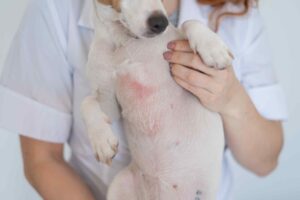A thorough U.S. review published in the journal Frontiers in Microbiology addresses the issue in light of studies in the literature and describes the prospects for what could prove to be in effect a nutritional therapy for a range of diseases
If the continuing findings on the gastrointestinal microbiota attest to the fact that it is truly a metabolically active organ closely linked to the health of the host, studies on the subject are proving to be a promising field of research in the veterinary field as well. Although still evolving, this is indeed a strand that, especially going forward, also carries important practical implications. Indeed, through appropriate dietary modifications, it is possible to correct any abnormalities in the microbiota structure and put into practice what can be considered for all intents and purposes a nutritional therapy for a range of disease forms.
Addressing the impact of food on the composition of the microbiota in cats and dogs is a thorough and detailed U.S. review published in the journal Frontiers in Microbiology, which describes and hypothesizes new ways to improve the health of the most popular companion animals.
Microbiota arrangement and diet composition
The subject of the review is the gastrointestinal microbiota, which has a qualitatively and quantitatively different set-up in the various districts of the digestive tract, from the oral cavity to the esophagus, stomach and different tracts of the intestine. The authors explain that, unlike humans, cats and dogs do not rely on the microbiota for their energy needs. In response to its nutritional demands, for example, the domestic cat requires high-protein foods and uses reduced amounts of glucose. The dog, on the other hand, is more omnivorous and is able to digest, absorb and metabolize higher amounts of carbohydrates. In general terms, the composition of the microbiota is similar, but some studies have pointed out that a higher diversity and a different composition of the fungal component are present in the cat. The proportions between different microbial phyla may also vary by race and age, which are non-modifiable factors, but these differences are largely attributable to the adaptation of the microbiota to diet, which is a modifiable factor instead.
Bacterial flora arrangement and pathological forms
Indeed, the fundamental substrate of the microbiota is food, which plays a crucial role in the composition and metabolic action of the commensal bacterial flora. For its part, the microbiota facilitates the absorption of nutrients and the production of postbiotics, bacterial-derived compounds that influence the health of the body. It seems clear, therefore, that through food choice, dog and cat owners have a crucial role to play in the appropriate composition of their pet’s microbiota. But while pet foods are formulated to include the classic nutrients-carbohydrates, proteins, and fats-increasingly they also include ingredients such as prebiotics and probiotics, specifically aimed at influencing the microbiota and its many functions. Growing evidence, in fact, suggests that, through the changes they exert at the level of the microbiota, dietary components are reflected not only in the tendency to develop gastrointestinal diseases, but also allergies, oral health problems, obesity, diabetes and kidney disease.
Each disease alters the bacterial flora in a specific way
Having delved into the relationship between the composition of the microbiota and various disease forms, the review reviews the findings on the possibility of modifying the qualitative-quantitative composition of the commensal bacterial flora to alter its metabolic functions for therapeutic purposes. Because each of the disease forms involving the microbiota is accompanied by specific alterations in the bacterial flora, the authors emphasize that nutritional interventions must correct the imbalances associated with each specific disease. Currently, however, although cat and dog diets may include ingredients that can protect the microbiota structure in general, their actual impact on an individual basis remains to be detailed and requires further study. The hypothesis is that in the future the use of specific biomarkers of bacterial origin may improve diagnosis, assessment of disease progression and prognosis, while directing the choice of the most effective nutritional therapy in that particular disease form.
Reference
Wernimont SM, Radosevich J, Jackson MI, et al. The Effects of Nutrition on the Gastrointestinal Microbiome of Cats and Dogs: Impact on Health and Disease. Front Microbiol. 2020;11:1266. Published 2020 Jun 25. doi:10.3389/fmicb.2020.01266







